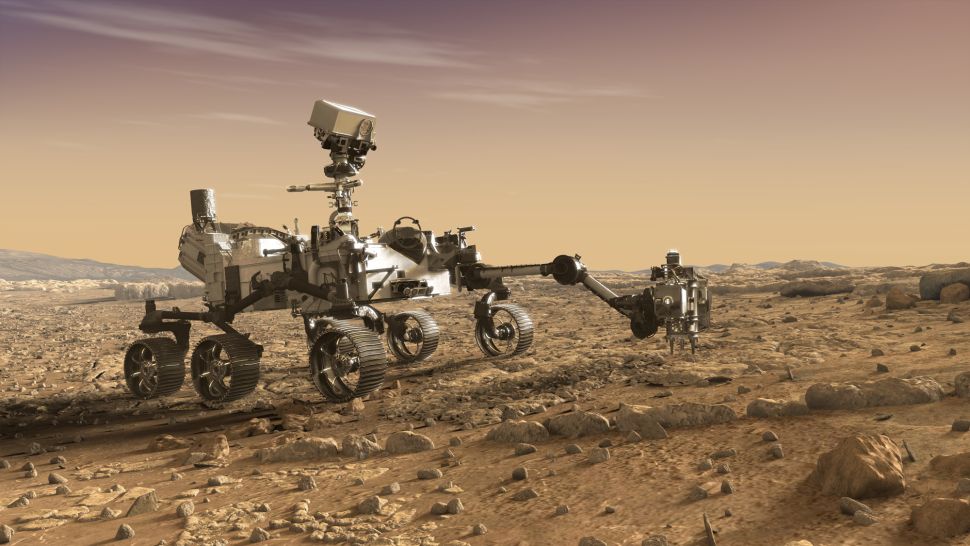
This article was originally published at The Conversation. The publication contributed the article to Space.com's Expert Voices: Op-Ed & Insights.
Gareth Dorrian, Post Doctoral Research Fellow in Space Science, University of Birmingham
Ian Whittaker, Lecturer in Physics, Nottingham Trent University
It will be one of the most daunting, complicated and, potentially, scientifically rewarding missions ever undertaken to the red planet. Ministers at a recent meeting of the European Space Agency (ESA) have fully committed to plans to collect samples from the surface of Mars and return them to Earth, in a joint effort with NASA. Official approval for the NASA budget to cover this mission is anticipated early next year.
The as yet unnamed mission will be accomplished with a series of launches, beginning in July 2020, with the Mars 2020 rover, which was already going ahead. This is a nuclear powered robotic rover which will make a precise touchdown in the Jezero crater in February, 2021.